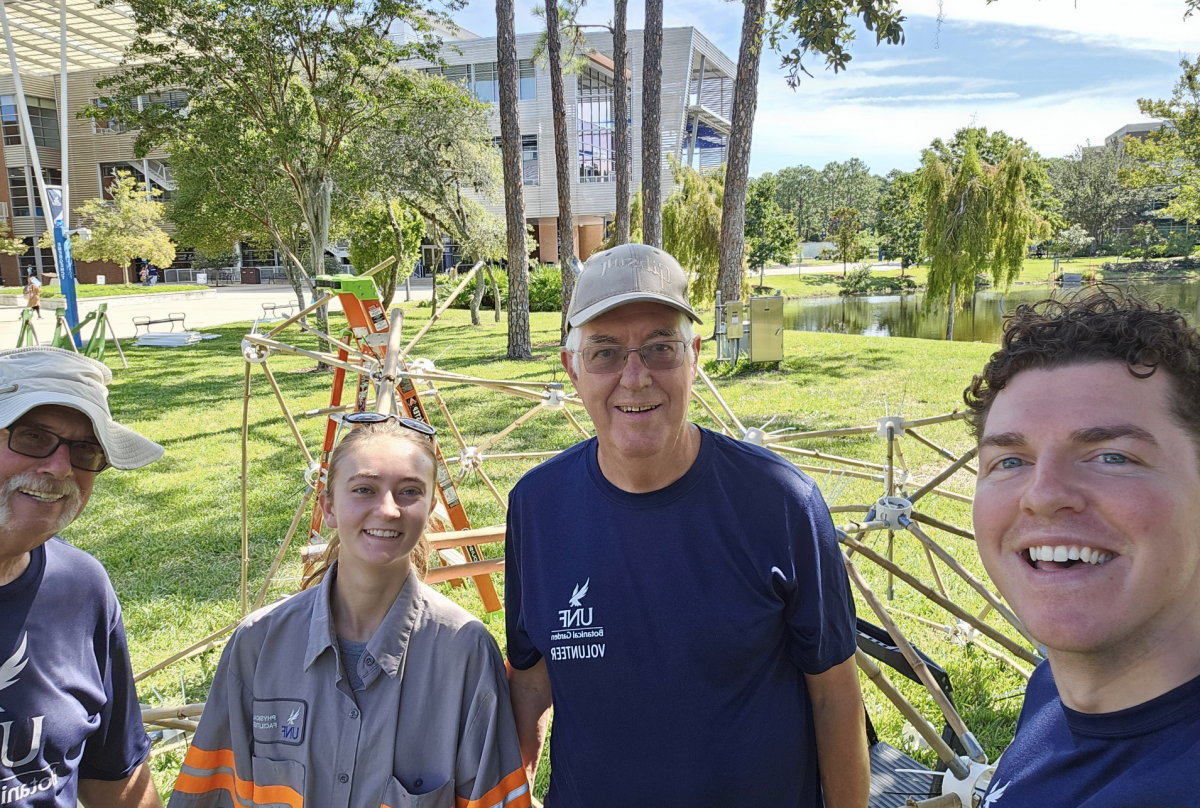This month, the University of North Florida received a $500,000 grant from NASA to research young stars and eclipsing binaries over the next three years.
Marina Kounkel, an associate professor of physics and astronomy at UNF, was awarded the grant to work alongside colleagues at Vanderbilt University.
Kounkel explained that binary stars are systems of two stars orbiting each other due to their gravitational pull. She said astronomers have modeled only a few dozen binaries with known ages but are constantly working to increase this number.
The research process for Kounkel looks a lot different than some may think. Kounkel spends most of her time analyzing surveys and mapping out data with the help of programming and machine learning. She said it’s much more complicated than gazing up at the night sky through a telescope.
“Astronomers rarely go to telescopes anymore. There are people that still have this image of us sort of staring at the sky all night, and that’s not really the case,” she said.

Astronomers use a star’s classification, or spectra, to learn about its temperature, density and composition. Kounkel calls this information “stellar parameters” and says the parameters of one star within a binary tell us a lot about its companion.
“Young stars have been notoriously difficult to … get a handle on because they are very meteorically active, and that introduces a lot of features to the surface that distorts spectra in ways that we can’t really model efficiently quite yet,” said Kounkel.
The federal grant will help Kounkel enhance her data analysis programs to be more sensitive to the nuances of young stars, which will help astronomers piece together data from other lesser-known stars.
___
For more information or news tips, or if you see an error in this story or have any compliments or concerns, contact editor@unfspinnaker.com.














